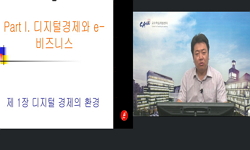In order to produce a harmful protein more efficiently, this expression cassette, dubbed pCol-MICT, is directed by the colicin promoter, and was constructed by the insertion of a $rrnBT_1T_2$ fragment of pEXP7, and a MxelnteinCBD fragment of pTXB3, in...
http://chineseinput.net/에서 pinyin(병음)방식으로 중국어를 변환할 수 있습니다.
변환된 중국어를 복사하여 사용하시면 됩니다.
- 中文 을 입력하시려면 zhongwen을 입력하시고 space를누르시면됩니다.
- 北京 을 입력하시려면 beijing을 입력하시고 space를 누르시면 됩니다.



Development of an E. coli Expression Cassette for the Efficient Production of a Harmful Protein
한글로보기https://www.riss.kr/link?id=A100967026
- 저자
- 발행기관
- 학술지명
- 권호사항
-
발행연도
2004
-
작성언어
English
- 주제어
-
등재정보
SCIE,SCOPUS,KCI등재
-
자료형태
학술저널
-
수록면
389-392(4쪽)
- 제공처
- 소장기관
-
0
상세조회 -
0
다운로드
부가정보
다국어 초록 (Multilingual Abstract)
In order to produce a harmful protein more efficiently, this expression cassette, dubbed pCol-MICT, is directed by the colicin promoter, and was constructed by the insertion of a $rrnBT_1T_2$ fragment of pEXP7, and a MxelnteinCBD fragment of pTXB3, into pSH375. To test whether harmful proteins, including proteolytic enzymes, could be effectively produced by this cassette, the carboxypeptidase (CPase) Taq gene was inserted into the pCol-MICT cassette to yield pCol-CPase Taq-MICT. E coli W3l 10 tells harboring pCol-CPase Taq-MICT produced a large quantity of this enzyme, as much as 47.2 mg of purified from per liter of culture, when cultured in the presence of mitomycin C ($0.4{\mu}g/mL$). This indicates that the colicin promoter-controlled E, coli expression cassette was able to produce almost 8 times of protein than the conventional tar promoter-based system, and that this cassette may be useful in the Synthesis of other harmful proteins.
동일학술지(권/호) 다른 논문
-
Separation of Amino Acids by Simulated Moving Bed Using Competitive Langmuir Isotherm
- The Korean Society for Biotechnology and Bioengineering
- Yang, Yun-Jeong
- 2004
- SCIE,SCOPUS,KCI등재
-
- The Korean Society for Biotechnology and Bioengineering
- Seo Eun-Seong
- 2004
- SCIE,SCOPUS,KCI등재
-
Anammox Bacteria Enrichment in Upflow Anaerobic Sludge Blanket (UASB) Reactor
- The Korean Society for Biotechnology and Bioengineering
- Thuan Tran-Hung
- 2004
- SCIE,SCOPUS,KCI등재
-
Mass Production of HzSNPV Baculoviruses in Immobilized Heliothis zea (HzAM1) Insect Cell Culture
- The Korean Society for Biotechnology and Bioengineering
- Son Jeong Hwa
- 2004
- SCIE,SCOPUS,KCI등재




 ScienceON
ScienceON







